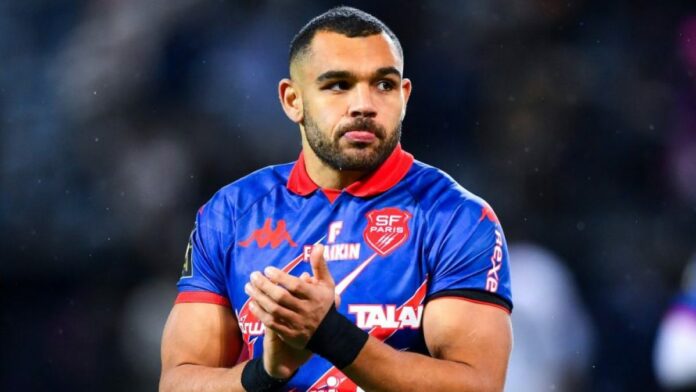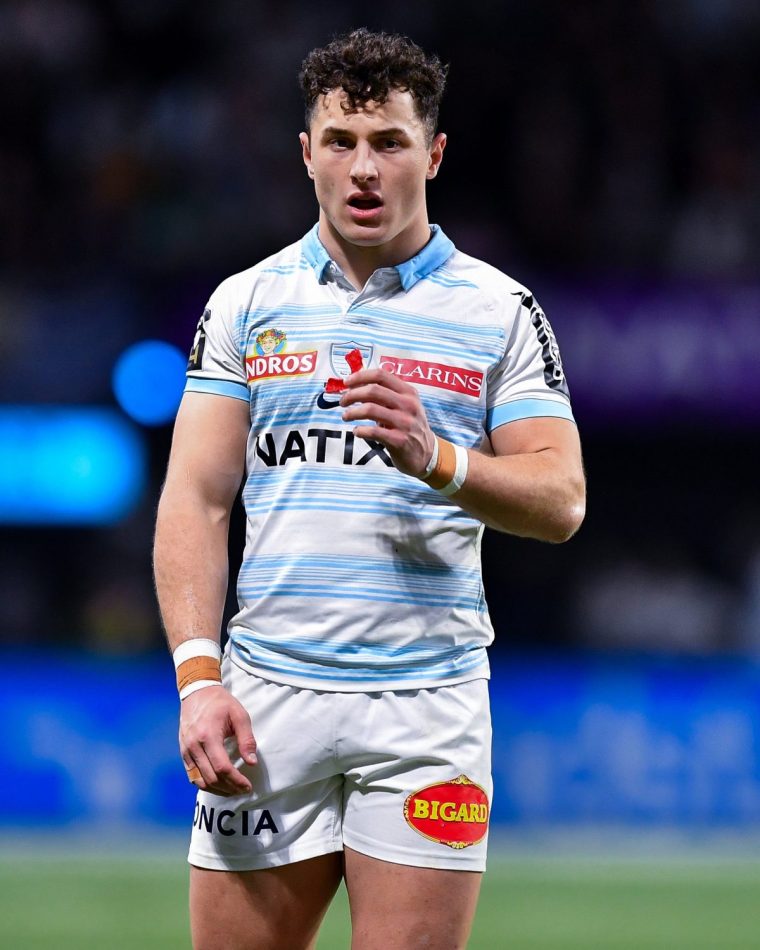
[ad_1]
England face France in the Six Nations with one hand tied behind their backs – but there is some good news for next season
As England get set to meet France at Twickenham on Saturday in a crunch clash in the Six Nations, the home side are labouring under a handicap.
It’s rugby’s reverse version of Brexit, with double figures of England players having rushed to the Eurozone, in a dash for French clubs’ cash, making them unavailable to Steve Borthwick’s team.
Some of the country’s finest talent are off limits to England across the Channel, due to the Rugby Football Union’s policy, supported by the Premiership, of banning any foreign-based player from selection for the national team.
The policy has ruled out a long list of England internationals currently in the French league: the forwards Courtney Lawes (Brive), Jack Willis (Toulouse), Dave Ribbans, Kyle Sinckler, Lewis Ludlam (all at Toulon), Billy Vunipola (Montpellier), Mako Vunipola (Vannes), Sam Simmonds (Montpellier), Will Collier (Castres), and backs Owen Farrell (Racing 92), Manu Tuilagi (Bayonne), Joe Marchant (Stade Francais), Jack Nowell (La Rochelle), Henry Arundell (Racing 92) and Dan Robson (Pau). Plus the uncapped Alex Moon (Bayonne), Joe Simmonds (Pau) and Zack Henry (Stade Francais).
The policy is protectionism with two main aims: to keep players in the domestic Premiership and keep them available for all the national team’s training and matches.
In the cases of the players above, it has conspicuously failed to work.
With Premiership clubs going bust, and a tight salary cap making Premiership wage budgets look puny by comparison with the TV-money fuelled wages available in France, off they went.
It has removed, in a short time span of a couple of years, more than 660 caps – exactly the factor the England head coach Borthwick has recently been complaining of missing.
The type of experience that last week showed up on Ireland’s team-sheet as 12 players aged 30 and over, compared to England’s three, as the Irish beat the English 27-22 in Dublin.
An England international playing for a French club used to be an oddity: outliers like Nigel Horton at Toulouse and Maurice Colclough at Angouleme in the 70s, Rob Andrew at Toulouse in the 80s, and Dan Luger from the 2003 World Cup winners joining Perpignan.
Then there was a steady trickle over the next decade or so, including Jonny Wilkinson, Iain Balshaw, Andy Goode, James Haskell, Jamie Noon, Andrew Sheridan, Simon Shaw, Toby Flood, Nick Abendanon and Steffon and Delon Armitage. The majority were in the twilight of their careers, but the RFU and Premiership were alarmed; hence the policy.
The current England captain Maro Itoje was asked on Thursday if he agreed with the RFU’s stance. “I’m not going to comment on the policy at this point, but we want all the best players to be available for selection for England,” said Itoje. “We want all the guys who are doing well playing for England, or at least being available for selection.
Maro Itoje has seen teammates like Owen Farrell swap English clubs for French (Photo: Getty)
“But everyone has their own individual careers and you have to make decisions which benefit you. I have a lot of respect for all the guys out there [in France]. I have played quite a lot of rugby and spent quite a lot of time with a lot of them. I wish them all the best, I wish them well.”
The key question is how many of these players would be playing for England if they hadn’t left?
Maybe one or two had quietly been given the nod their time with the national team was up, or had made that decision for themselves.
A 35-year-old prop like Mako Vunipola might have struggled to keep turning in 20-plus top-class matches a season for club and country, although Cian Healy at 37 is doing it for Leinster and Ireland.
Vunipola’s younger brother Billy hasn’t given up thoughts of playing for England, even if Borthwick might have moved on from him.
Lawes, Tuilagi and Farrell had plenty of miles on the clock, but Ribbans, at 29, was hitting his peak as a hard and mobile second row and line-out jumper, when he joined Toulon from Northampton.
Marchant, at 28, is a brilliant midfielder mix of attacker and defender – he started in the No 13 shirt in all England’s 2023 World Cup knockout matches but is now serving Stade Francais, second from bottom in the Top 14.
His absence and that of the 31-year-old Nowell are a factor when there are moans about the lack of alternatives to the England centres Henry Slade and Ollie Lawrence.
Willis is playing in the back row of arguably the world’s greatest club team at Toulouse, and an article on the French league’s website this week had the taunting headline: “Jack Willis has made the Top 14 his kingdom – focus on the new favourite Englishman of the French.”
The 22-year-old Arundell was having his struggles adjusting to a kick-dominated England in 2023 but he could have been maturing among fellow English players at an English club instead of sharing in Racing 92’s soap-opera woes, with coach Stuart Lancaster departing last week.
 Henry Arundell will soon be heading back to England and join Bath (Photo: Getty)
Henry Arundell will soon be heading back to England and join Bath (Photo: Getty)
All the above plus Sinckler, Ludlam, Simmonds, Collier, Robson and Moon are players who, if they had stayed and wanted to be considered, would be at least pushing for selection.
Even if only three or four of them were added to the England team, it could have been enough to reverse some of the close-run defeats everyone has been talking about.
Itoje was asked if he ever ponders the difference the absentees could be making. “All of that is a little bit of hypotheticals,” he said. “Many of them could be in England but that doesn’t mean they will get picked because there is a lot of competition in almost every position. Nothing is guaranteed, whether they are here or there.”
What would it have taken to keep them? Maybe some of the good money that the RFU’s chief executive Bill Sweeney and fellow directors have been paid while presiding over a losing England team.
Although, if a rough estimate of the extra earnings these players are making on their French leave is £400,000 each over a two-year contract, it comes to a combined £7m, and maybe a great deal more – not the kind of wedge going spare in England, at Twickenham or anywhere else.
Itoje, who has spent all his career at Saracens, was wanted by Racing 92 in the 2020-21 season his club spent in the Championship, but the Premiership refused to ratify an exception to the RFU policy. More recently, he rejected other offers from France.
“The reason I didn’t pursue that is because I wanted to play for England,” the 30-year-old second-rower said. “I felt like my time in an England shirt was not quite done yet.
“In my heart of hearts I would have been looking at England playing, from across the Channel, and I wouldn’t have been at peace with the decision. There are a whole load of different factors one can use to determine whether you stay here or go there but, for me, I felt if I went it would have been a bit premature if I went at that time.”
Now, the good news.
On Thursday, Arundell announced his return to England to join Bath next season.
He went to school near the city and will be joining a club and a coach on the up.
A juicy carrot to be waved is playing for England on the grand stage of the World Cup in Australia in two-and-a-half years’ time, and it might lure back others who have banked their Euros, enjoyed the French lifestyle and enhanced their rugby, but were never going to stay away forever.
Borthwick has so far placed 17 home-based players on the RFU’s enhanced elite contracts, and there should be headroom to add some homecoming kings.
But it won’t be in time for this weekend, so the likes of Itoje who stayed put must carry the flag.
[ad_2]
Copyright for syndicated content belongs to the linked Source link


